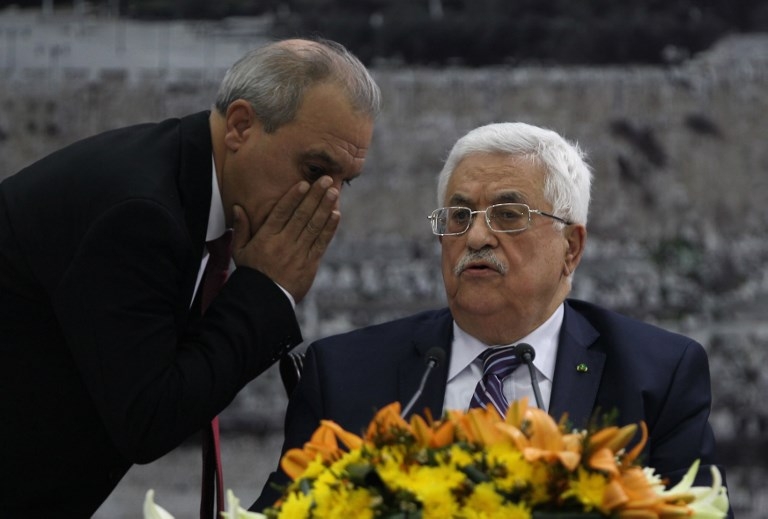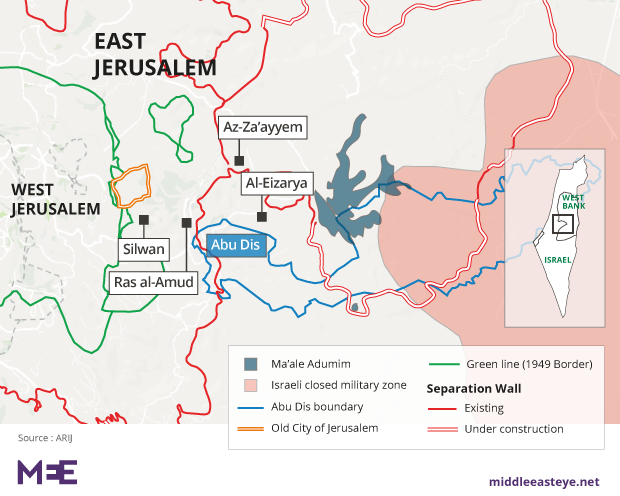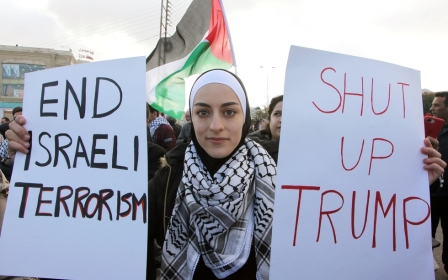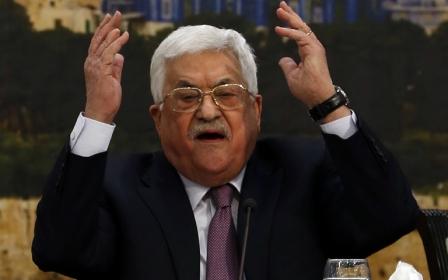Palestinians have seen Trump 'deal of the century', and want nothing of it

JERUSALEM – Saudi officials delivered a copy of US President Donald Trump's "deal of the century" to Palestinian President Mahmoud Abbas, but he has refused to open the document or play any role in the process, Middle East Eye can reveal.
Details of Trump’s deal have not yet been officially released, but armed with the 35-page document from the Saudis, the Palestinian Authority already knows every single article in the proposed plan and say the Americans will "not find any Palestinian to accept such a deal".
"The plan calls for having a Palestinian state with provisional borders on half of West Bank and the Gaza Strip, without Jerusalem, and calls for humanitarian solutions to the refugee issue," a Palestinian official said, on condition of anonymity.
"The deal calls for building a new Jerusalem for the Palestinians from the surrounding villages and communities," he said.
Trump and Netanyahu are planning to terminate the Palestinian cause by removing Jerusalem from any solution, annexing major settlements and finding a capital for us on the outskirts of Jerusalem
- Saeb Erakat, chief Palestinian negotiator
It also keeps Palestinian security and borders in the hands of Israel and leaves the settlements and the final borders to future negotiations.
The plan says the Palestinians can develop their own "Jerusalem" from villages and neighbourhoods around the original city – which both Israel and Palestine want as their capital, officials said on condition of anonymity because they were not authorised to talk to the media as the plan has not yet been officially released.
The plan also calls for having a route from the new state of Palestine to the Old City of Jerusalem, where the Palestinians can pray at the Al-Aqsa Mosque and the Church of Holy Sepulchre.
Chief Palestinian negotiator Saeb Erekat told Middle East Eye that he believes that Trump's plan is based on confining and limiting the Palestinian state to the Gaza Strip and only parts of the West Bank, without Jerusalem.
That's the reason behind the sudden American interest in the Gaza Strip, he said.
Earlier this week, the White House held a meeting on the humanitarian situation in Gaza, which included participation from 19 countries - Palestinians boycotted the conference.
"The sudden American awakening on Gaza is full of suspicions," Erekat said.
"Trump and Netanyahu are planning to terminate the Palestinian cause by removing Jerusalem from any solution, annexing major settlements and finding a capital for us on the outskirts of Jerusalem," Erekat said.
Saudi Arabia's King Salman recently phoned the Palestinian president, asking him to send his intelligence chief, Majid Faraj, to Riyadh, according to a Palestinian official.
Faraj was received in the Saudi capital by Riyadh’s intelligence chief, who handed him the US proposal.
Sources said Faraj came up with a counter proposal, after consulting with Abbas by phone. The Saudis then passed it to the American team who refused to discuss it and warned that “the plan is not for negotiation, it’s for implementation”.
Saudi Arabia raised the financial aid the kingdom gives to the Palestinian Authority in the past couple of months from $7.5m to $20m per month, seen by some as a bribe to accept the deal.
But officials say Abbas will not accept any deal that falls far short of the creation of a Palestinian state based on the 1967 borders, including East Jerusalem.
“We expect to come under pressure from the US and some Arab countries to engage in such a process but we will not, simply because we know what is being cooked up for us,” the official added.
With or without Palestinian approval
At a meeting last month with EU representatives in Jerusalem, US envoy for the Middle East Jason Greenblatt said that the US peace plan is designed to benefit the region as a whole, and does not require the consent of the Palestinians, sources told MEE.
“The Palestinians are no longer the deciding party. We have a plan for the region and the Palestinians can join in if they want, but they are also free not to,” he is understood to have said in the meeting.
The US envoy said the American “deal of the century” is a regional plan designed to end the Israeli-Palestinian conflict and create an Arab-Israeli coalition to counter the joint threats of Iran and terrorism, he said.
The Americans are planning to have a regional peace deal, and they don’t care if the Palestinians are in or out
- Ali Jarbawi, political science professor
Abbas is deeply concerned that major Arab countries might sign on to such a US-led regional peace deal, despite the Palestinian objections, officials told MEE.
An aide to Abbas said that the Palestinian leader has shut the doors to any US efforts to present such a peace deal, but that he is worried that the Americans could convince other Arab governments to agree to the “regional peace deal,” bypassing the Palestinians.
Ali Jarbawi, political science professor at Birzeit University in the West Bank, said the Palestinian concerns are legitimate.
“The Americans are planning to have a regional peace deal, and they don’t care if the Palestinians are in or out," Jarbawi said.
Middle East Eye propose une couverture et une analyse indépendantes et incomparables du Moyen-Orient, de l’Afrique du Nord et d’autres régions du monde. Pour en savoir plus sur la reprise de ce contenu et les frais qui s’appliquent, veuillez remplir ce formulaire [en anglais]. Pour en savoir plus sur MEE, cliquez ici [en anglais].





